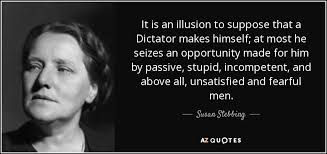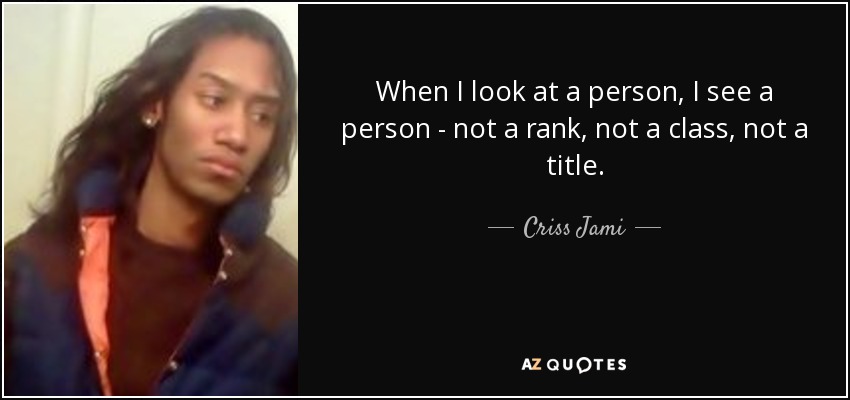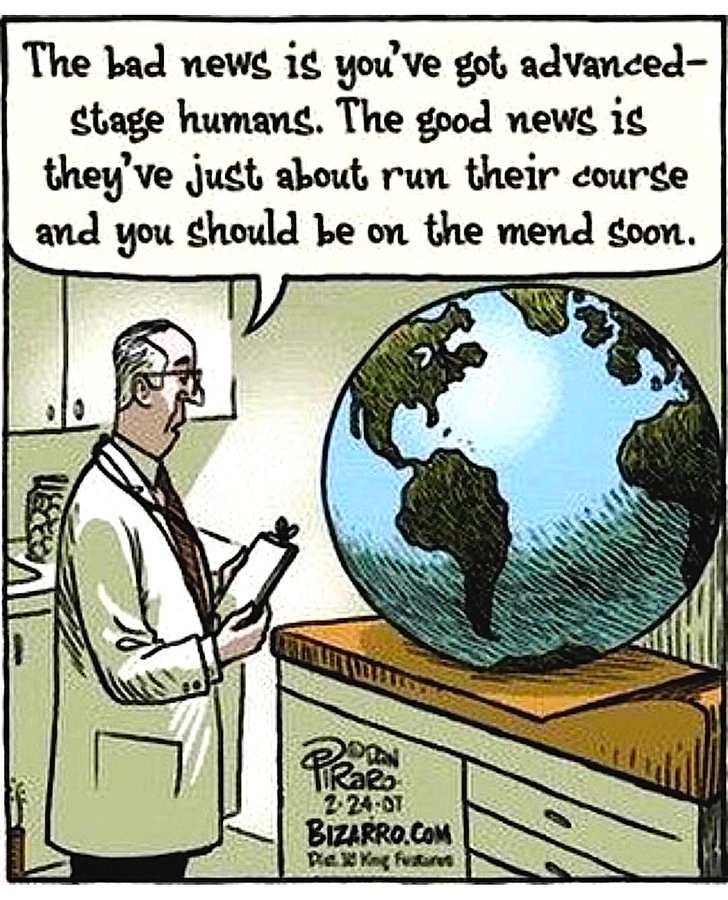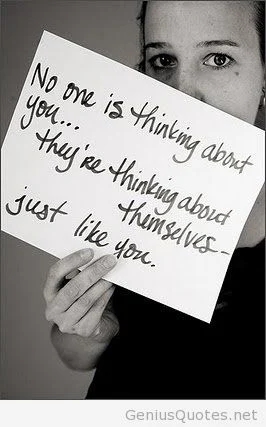
Humans have big brains. That’s what we’re told. For years scientists have argued, “our brains have more neurons and expend more energy than would be expected for our size, and our cerebral cortex, which is responsible for higher cognition, is disproportionately large” (source: Scientific American).
If humans have big brains (note: Dolphins’ brains are bigger and their intelligence is so different we can barely comprehend it), one would assume humans are smart, but if you look around, you see absolute stupidity! You see millions of people damaging themselves through violence, crime and substance abuse, damaging other creatures and people through cruelty, deviancy, murder and war, and damaging the natural environment through overpopulation, pollution, burning fossil fuels, and deforestation.
If humans are so intelligent, why are they repeatedly conned and abused? People think they’re intelligent but let themselves be bamboozled by fears and self-interests peddled by dictators and or criminals such as, Vladimir Putin, Kim Jong-Un, Bashar al-Assad and Donald Trump—just to name a few.
In Thinking to Some Purpose (1939) (available here for free), British philosopher “Lizzie” Susan Stebbing (1885-1943) wrote, “Some forms of ineffective thinking are due to our not unnatural desire to have confident beliefs about complicated matters with regard to which we must take some action or other….we easily fall into the habit of accepting compressed statements which save us from the trouble of thinking” (Wikipedia).

The problems we create individually and collectively have less to do with intelligence, as in, “the ability to acquire and apply knowledge and skills” (Oxford) and more to do with wisdom. Like the writer Dostoevsky said, “It takes something more than intelligence to act intelligently” (Crime and Punishment, 1886). That something “more” is wisdom and compassion, both of which are missing in the actions of the selfish and criminal.
The poet Christopher James Gilbert (aka Criss Jami) (1987-present) wrote, “Man is not, by nature, deserving of all that he wants. When we think that we are automatically entitled to something, that is when we start walking all over others to get it.”

Similarly, the novelist Marie Louise de la Ramée (aka Ouida) (1839-1908) observed, “Intensely selfish people are always very decided as to what they wish. They do not waste their energies in considering the good of others” (Wanda, 1883).
So, what’s the answer? We know selfishness is a problem, but knowing it’s a problem doesn’t seem to stop us! A lot of people have a philosophy like that of the Russian writer Fyodor Dostoevsky (1821-1881) who wrote, “I say let the world go to hell, but I should always have my tea” (Notes from Underground, 1864) or like the French philosopher Albert Camus (1913-1960) who wrote, “To be happy, we must not be too concerned with others” (The Fall, 1956).
Cue music:
But such a self-focus fails to recognize our dependence on others and the interconnectedness of things on Earth. As Stephen Kendrick said, “Almost every sinful action ever committed can be traced back to a selfish motive. It is a trait we hate in other people but justify in ourselves” (The Love Dare, 2008)
So, how do we overcome selfishness?
A Tibetan Buddhist lama named Khandro Rinpoche wrote, “A society based upon peace, harmony, wisdom and compassion is possible, but we must all begin with ourselves… As human beings, we all try our best to bring about a world based on kindness and compassion. What seems to go wrong, however, is that what I want, what I personally would like, becomes more important than the benefit of the whole community” (Compassion and Wisdom).
Because we want happiness and nobody wants to suffer, the actions we take (or don’t take) are motivated by thoughts like, “How can I be happy? How can I avoid pain?” but by so doing we develop a selfish attitude.
We get so focused on thoughts and emotions, we don’t see clearly. When we respond to a desire and say, “Yes! Yes! Do it! Do it!” or a fear and say, “No! No! Don’t do it!” we can get sucked in by our own thoughts so the trick is to first observe the thought or feeling and then to not act on it impulsively. With practice you may realize that acting on mental chatter narrowly focused on a fear or a now-reward is not a good plan.
We think our thoughts have our best interests, but that’s not correct (see: It’s not me. It’s my brain…).
Give yourself time to see the “big picture” or as what astrophysicist Neil deGrasse Tyson would call a “cosmic perspective.” In Tyson’s book, Starry Messenger: Cosmic Perspectives on Civilization (2021), we are urged to base our actions on accurate observation and be willing to discard ideas that don’t work.
A cosmic perspective would see that our body is made of cells and these cells survive on food, air and water which comes from the earth. We are, in effect, the earth in the form of an organism and our entire life experience as a body is perceived through our mind and our mind is a stream of consciousness flowing. The trick is to become aware of how thoughts and feelings may deceive us, and, moreover, in mental self-absorption, make us oblivious to the world around us.
To derail selfish thoughts try going into nature wherever you can find it and maybe do something that you know needs doing. Transfer the focus from yourself to the beauty, wonder and good people all around.
Rather than a Freudian psychoanalytical approach where we dwell on ourselves and entertain thoughts and feelings to gain insight, for this we take a more Zen approach as exemplified in Morita therapy. The Japanese psychiatrist Shoma Morita (1874-1938) encouraged us to accept reality and to do what needs to be done however mundane that might be (i.e., make your bed, wash dishes). As Morita said, “Give up on yourself. Begin taking action now, while being neurotic or imperfect, or a procrastinator, or unhealthy, or lazy, or any other label by which you inaccurately describe yourself. Go ahead and be the best imperfect person you can be and get started on those things you want to accomplish before you die” (see: The Essence of This).
And enjoy the enjoyment of others enjoying.





